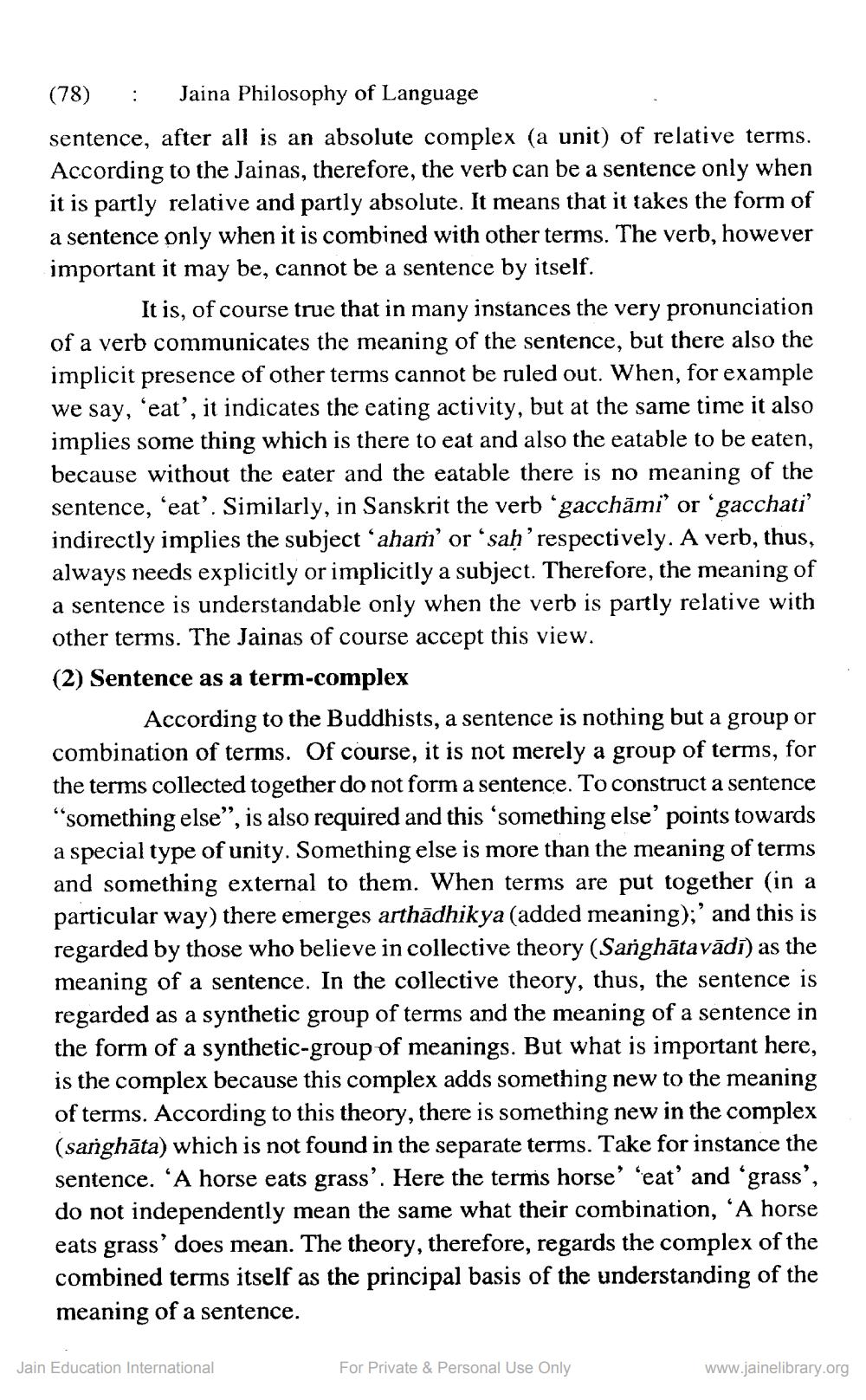________________
(78) : Jaina Philosophy of Language sentence, after all is an absolute complex (a unit) of relative terms. According to the Jainas, therefore, the verb can be a sentence only when it is partly relative and partly absolute. It means that it takes the form of a sentence only when it is combined with other terms. The verb, however important it may be, cannot be a sentence by itself.
It is, of course true that in many instances the very pronunciation of a verb communicates the meaning of the sentence, but there also the implicit presence of other terms cannot be ruled out. When, for example we say, 'eat', it indicates the eating activity, but at the same time it also implies some thing which is there to eat and also the eatable to be eaten, because without the eater and the eatable there is no meaning of the sentence, 'eat'. Similarly, in Sanskrit the verb 'gacchâmi' or 'gacchati' indirectly implies the subject ‘aham' or 'saħ' respectively. A verb, thus, always needs explicitly or implicitly a subject. Therefore, the meaning of a sentence is understandable only when the verb is partly relative with other terms. The Jainas of course accept this view. (2) Sentence as a term-complex
According to the Buddhists, a sentence is nothing but a group or combination of terms. Of course, it is not merely a group of terms, for the terms collected together do not form a sentence. To construct a sentence “something else”, is also required and this ‘something else' points towards a special type of unity. Something else is more than the meaning of terms and something external to them. When terms are put together (in a particular way) there emerges arthādhikya (added meaning);' and this is regarded by those who believe in collective theory (Sanghātavādi) as the meaning of a sentence. In the collective theory, thus, the sentence is regarded as a synthetic group of terms and the meaning of a sentence in the form of a synthetic-group of meanings. But what is important here, is the complex because this complex adds something new to the meaning of terms. According to this theory, there is something new in the complex (sanghāta) which is not found in the separate terms. Take for instance the sentence. ‘A horse eats grass'. Here the terms horse' 'eat' and 'grass', do not independently mean the same what their combination, 'A horse eats grass' does mean. The theory, therefore, regards the complex of the combined terms itself as the principal basis of the understanding of the meaning of a sentence.
Jain Education International
For Private & Personal Use Only
www.jainelibrary.org




